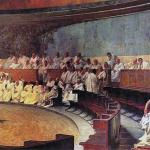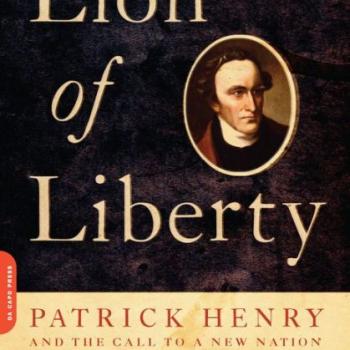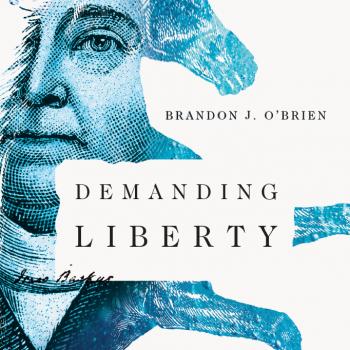I’m sure there are people who haven’t read Johnny Tremain. If you are one of those people, go read it now because it is quite simply excellent. (The Disney live-action movie isn’t terrible either. I mean, it’s not great. But it’s not terrible.)
That said, I’m fairly confident that a disproportionate number of Americans have actually read this book given that it is a staple of middle school assigned reading. At least, it was when I was in school. I suppose with the general decline of American education it’s more of a high school or even freshman college-level book these days. In any case, I’ve just finished re-reading it, now on the other side of a PhD in American politics written about that range of time (technically I was writing on Jonathan Edwards, so it was a little earlier–but not much). In that light it’s an interesting book, as well as being a well-written one.
What stood out most to me on this reading was the repeated claim that what the colonists were fighting for was the idea that ‘a man can stand up.’ That is, they were arguing that the American Revolution was not just about the American colonies, but it was rather a blow in defense of the general rights of all mankind everywhere. They were fighting for the Russian serfs and the French peasants and even the under-represented English citizens in the British Isles.
This claim is not completely inaccurate–there certainly were Founders who were fighting for more universal ideas of rights. Thomas Paine and Thomas Jefferson both spring to mind. Who could ever forget the most famous passages of the Declaration of Independence that speak of all men as being “endowed by their Creator with certain unalienable rights”?
And yet, this is only a portion of the reasons the colonists were fighting for independence. Yes, there is the high-flown language of the first part of the Declaration, but there’s also that long majority of the document that speaks of the specific tyrannies of the King, who has:
- “kept among us, in times of peace, Standing Armies without the Consent of our legislatures.”
- “depriv[ed] us in many cases, of the benefit of Trial by Jury”
- And, most famously, who has “impos[ed] Taxes on us without our Consent’
In other words, there were those who were fighting for general rights. But there were also those who were fighting for the correction of specific, real-world wrongs. The American Revolution simply cannot be reduced to a monolithic cause, even if there are individuals who were involved who did have single uncomplicated motivations.
With that said, I think there is still a lesson here. While big, sweeping ideals have their place, the nitty-gritty particulars are what we ought to be focusing on. For example, as Christians we are called to exercise mercy and engage with the problems of the world (I’d use the phrase ‘social justice’, but frankly that phrase has been ruined by people who abuse it). And yet, this call is to be a practical, personal, and immediate call. We are to care for our neighbor in the literal sense of the word, we are not to try to solve the problems of all neighbors everywhere. We are to care for the poor in their need, but in their actual need. We are not called to solve the problem of poverty for all times and at all places–that would be, to steal a line from the philosopher Eric Voegelin, attempting to ‘immantize the eschaton.’ Instead we are to focus on immediate and pressing real-world problems, while remembering that the systematic and fundamental problems will be solved only at the return of Christ.
Dr. Coyle Neal is co-host of the City of Man Podcast and an Assistant Professor of Political Science at Southwest Baptist University in Bolivar, MO.














